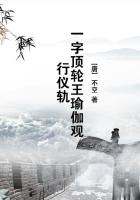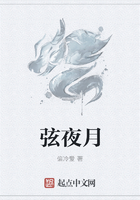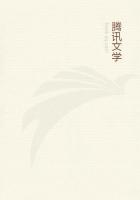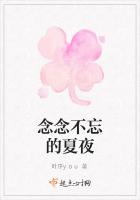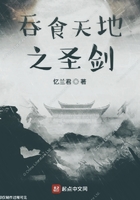The sun of Martin's good fortune rose. The day after Ruth's visit, he received a check for three dollars from a New York scandal weekly in payment for three of his triolets. Two days later a newspaper published in Chicago accepted his "Treasure Hunters," promising to pay ten dollars for it on publication. The price was small, but it was the first article he had written, his very first attempt to express his thought on the printed page. To cap everything, the adventure serial for boys, his second attempt, was accepted before the end of the week by a juvenile monthly calling itself YOUTH AND AGE. It was true the serial was twenty-one thousand words, and they offered to pay him sixteen dollars on publication, which was something like seventy-five cents a thousand words; but it was equally true that it was the second thing he had attempted to write and that he was himself thoroughly aware of its clumsy worthlessness.
But even his earliest efforts were not marked with the clumsiness of mediocrity. What characterized them was the clumsiness of too great strength - the clumsiness which the tyro betrays when he crushes butterflies with battering rams and hammers out vignettes with a war-club. So it was that Martin was glad to sell his early efforts for songs. He knew them for what they were, and it had not taken him long to acquire this knowledge. What he pinned his faith to was his later work. He had striven to be something more than a mere writer of magazine fiction. He had sought to equip himself with the tools of artistry. On the other hand, he had not sacrificed strength. His conscious aim had been to increase his strength by avoiding excess of strength. Nor had he departed from his love of reality. His work was realism, though he had endeavored to fuse with it the fancies and beauties of imagination.
What he sought was an impassioned realism, shot through with human aspiration and faith. What he wanted was life as it was, with all its spirit-groping and soul-reaching left in.
He had discovered, in the course of his reading, two schools of fiction. One treated of man as a god, ignoring his earthly origin; the other treated of man as a clod, ignoring his heaven-sent dreams and divine possibilities. Both the god and the clod schools erred, in Martin's estimation, and erred through too great singleness of sight and purpose. There was a compromise that approximated the truth, though it flattered not the school of god, while it challenged the brute-savageness of the school of clod. It was his story, "Adventure," which had dragged with Ruth, that Martin believed had achieved his ideal of the true in fiction; and it was in an essay, "God and Clod," that he had expressed his views on the whole general subject.
But "Adventure," and all that he deemed his best work, still went begging among the editors. His early work counted for nothing in his eyes except for the money it brought, and his horror stories, two of which he had sold, he did not consider high work nor his best work. To him they were frankly imaginative and fantastic, though invested with all the glamour of the real, wherein lay their power. This investiture of the grotesque and impossible with reality, he looked upon as a trick - a skilful trick at best.
Great literature could not reside in such a field. Their artistry was high, but he denied the worthwhileness of artistry when divorced from humanness. The trick had been to fling over the face of his artistry a mask of humanness, and this he had done in the half-dozen or so stories of the horror brand he had written before he emerged upon the high peaks of "Adventure," "Joy," "The Pot," and "The Wine of Life."
The three dollars he received for the triolets he used to eke out a precarious existence against the arrival of the WHITE MOUSE check.
He cashed the first check with the suspicious Portuguese grocer, paying a dollar on account and dividing the remaining two dollars between the baker and the fruit store. Martin was not yet rich enough to afford meat, and he was on slim allowance when the WHITE MOUSE check arrived. He was divided on the cashing of it. He had never been in a bank in his life, much less been in one on business, and he had a ***** and childlike desire to walk into one of the big banks down in Oakland and fling down his indorsed check for forty dollars. On the other hand, practical common sense ruled that he should cash it with his grocer and thereby make an impression that would later result in an increase of credit.
Reluctantly Martin yielded to the claims of the grocer, paying his bill with him in full, and receiving in change a pocketful of jingling coin. Also, he paid the other tradesmen in full, redeemed his suit and his bicycle, paid one month's rent on the type-writer, and paid Maria the overdue month for his room and a month in advance. This left him in his pocket, for emergencies, a balance of nearly three dollars.
In itself, this small sum seemed a fortune. Immediately on recovering his clothes he had gone to see Ruth, and on the way he could not refrain from jingling the little handful of silver in his pocket. He had been so long without money that, like a rescued starving man who cannot let the unconsumed food out of his sight, Martin could not keep his hand off the silver. He was not mean, nor avaricious, but the money meant more than so many dollars and cents. It stood for success, and the eagles stamped upon the coins were to him so many winged victories.

